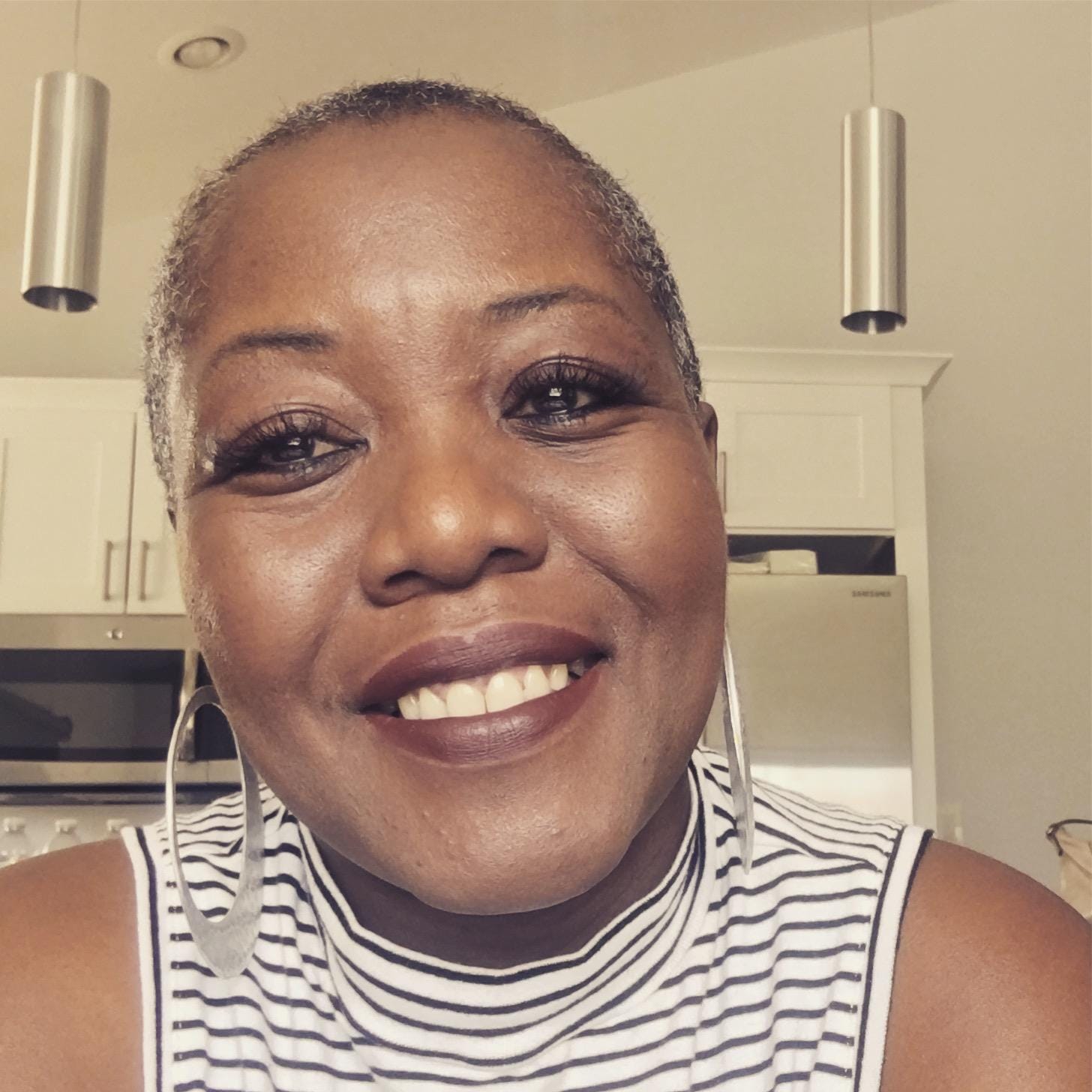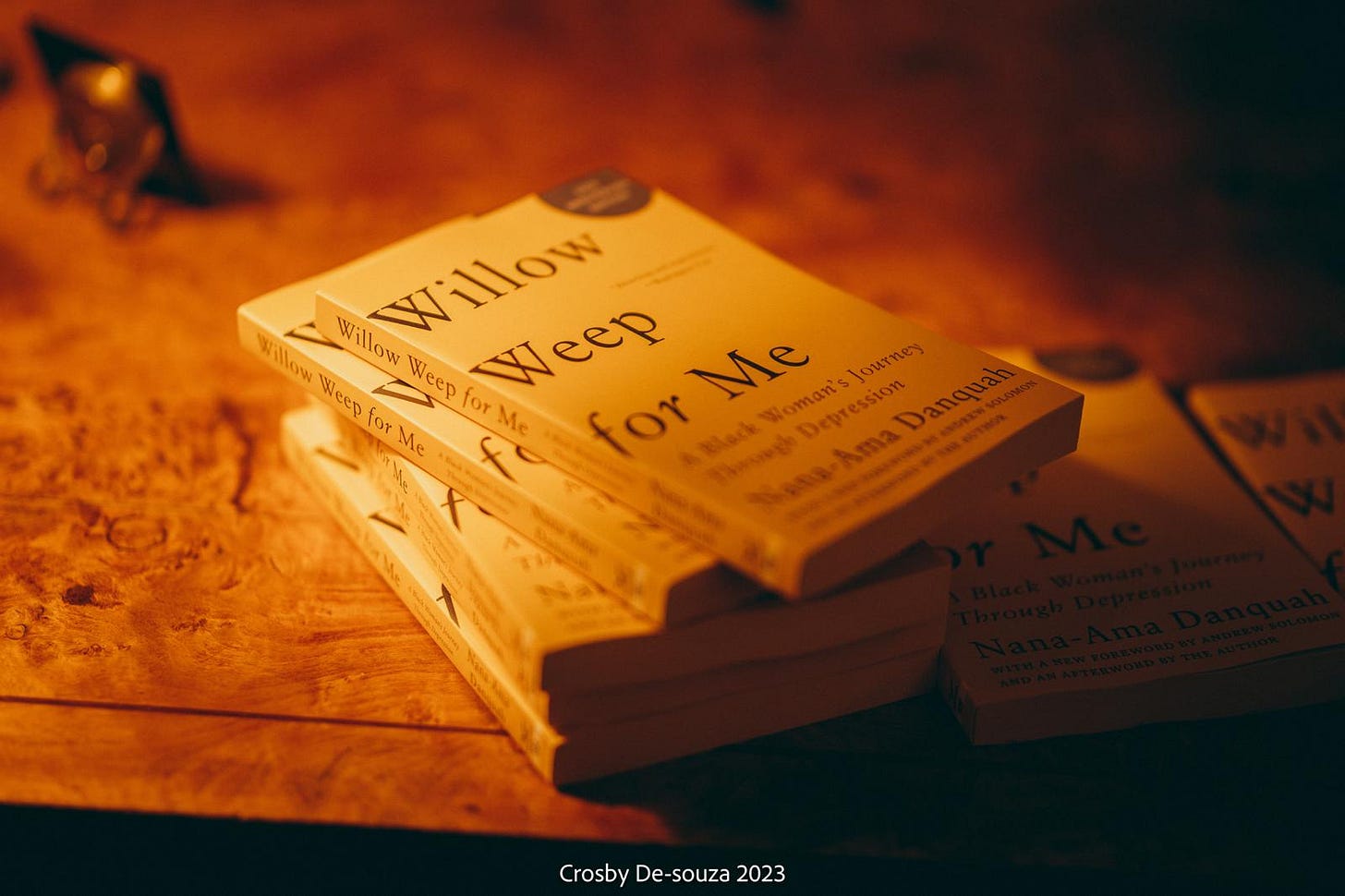All The Love And Joy Our Lives Can Contain: A Conversation with Nana-Ama Danquah
On mental health, rest, "nice" v "kind", how our energy affects one another, spontaneous generosity, the potency of local friends, and the myth of the Black female caretaker.
Intimate conversations with our greatest heart-centered minds.
and I first bonded over Bruce Springsteen. She’d posted about memoir recommendations in a private women writer’s group on social media and I’d suggested Springsteen’s, which had really moved me: I find him to be a kind, wise, and deeply decent human. It turns out Nana-Ama did, too. And it further turned out that Nana-Ama is a kind, wise, and deeply decent human herself. She’s also gigantically funny, thoughtful, generous, and a wildly gifted writer. We quickly became friends. So this interview was extra special for me.Evidence of Nana-Ama being a wildly gifted writer is her gorgeous and groundbreaking memoir Willow Weep for Me: A Black Woman’s Journey Through Depression. A single mother in her twenties, Nana-Ama struggled with clinical depression long before understanding what was happening in her body and mind, let alone finding help. With graceful precision, she takes us on her journey away from the myth that Black women are strong and therefore don’t suffer and toward a deeper, more tender knowing of herself. The 25th Anniversary Edition was published this year with a foreword by Andrew Solomon and a beautiful afterword by Nana-Ama.
A native of Ghana, Nana-Ama has also edited four anthologies: Becoming American: Personal Essays by First Generation Immigrant Women; Shaking the Tree: New Fiction and Memoir by Black Women; The Black Body; and, Accra Noir. She also writes the beautiful Substack newsletter Danquah Rising.
Nana-Ama lives in Southern California with a grapefruit tree in her back garden, the fruit of which she delivers to friends’ homes every Christmas!
You can read Nana-Ama’s answers to the Beyond Questionnaire here.
⭐️ Nana-Ama is generously gifting four readers an autographed copy of Willow Weep For Me! If you’d like to be one of the recipients, please add “WILLOW” after your comment. The winners will be chosen at random on Monday, November 18th and notified by Substack Direct Chat. Shipping is limited to the United States. ⭐️
What does being mentally healthy look like to you? Has your understanding of it shifted over the decades?
For me, the first thing is rest. Which I think so few of us do, even those of us that don't have a mental health issue. Though it's debatable who doesn't and who does—but that's another conversation. We're always on, on, on! And the word that everyone says is, "Busy.” During the pandemic was when it dawned on me how we just don't rest. People would say to me in the middle of lockdown, "Oh, yeah, I'm really busy." And I thought, “Doing what? What are you so busy doing?” Then I realized it's this addiction to doing and not being. We're always over-scheduling, overburdening ourselves.
Rest gives you the ability to see things clearly so you make better decisions for yourself in terms of whether to say yes or no to something. If you say, “I'm going to sleep on that.” And then you actually do sleep, you're in a better place to make better decisions.
Along with rest goes eating properly, drinking water, moving your body. I find that when I start doing those things together, it creates a better ecosystem in my whole body including in my mind. People think, “What does your mental health have to do with your nutritional health?” A lot. Scientists are learning that your gut, your microbiome, has a lot to do with mental health.
Also sunshine, getting up and getting outside, earthing or grounding, not wearing shoes all the time, having your feet be exposed to the minerals in the ground. Little things that I think a lot of us did naturally as children.
When you talk about rest, do you mean sleep, or are you also talking about just stopping during the day — maybe reading a book or sitting under a tree?







